Discover Shifting Schools: Conversations for K12 Educators
Shifting Schools: Conversations for K12 Educators

Shifting Schools: Conversations for K12 Educators
Author: Jeff Utecht & Tricia Friedman
Subscribed: 147Played: 6,545Subscribe
Share
© Jeff Utecht Consulting Inc. 2022
Description
Shifting Schools is a thought-provoking podcast that explores the latest trends, strategies, and tools in K-12 education. Hosted by educators Jeff Utecht and Tricia Friedman, the podcast provides a platform for teachers, administrators, and education thought leaders to share their experiences and insights on how to improve teaching and learning. From innovative approaches in classroom management to leveraging technology for personalized learning, Shifting Schools tackles the most pressing issues facing K12 educators today. Whether you are a seasoned teacher or a new educator, this podcast will inspire you to think outside the box and shift your educational approach. Tune in to Shifting Schools to gain new perspectives, share ideas, and join a community of passionate educators who are committed to making a positive impact in the lives of their students.
Follow us at @shiftingschools on Twitter and @shiftingschoolspod on Instagram and Tiktok
Follow us at @shiftingschools on Twitter and @shiftingschoolspod on Instagram and Tiktok
301 Episodes
Reverse
In this episode of Shifting Schools, Jeff Utecht and Tricia Friedman discuss their upcoming training sessions focused on integrating AI into education. They emphasize the importance of understanding AI's impact on the job market, the necessity of prompt engineering as a new skill for educators, and the need for AI literacy among students. The conversation also touches on the evolving nature of AI tools and the importance of addressing mental health concerns related to technology use among students. You can learn more about the five part series: https://web.cvent.com/event/19d647db-557e-4502-8a0c-17bd3325fe0b/summary Takeaways AI is reshaping the educational landscape and job market. Understanding AI's impact is crucial for educators and students. Prompt engineering is a vital skill for effective AI use. Generative AI can enhance learning and career exploration. Educators must engage with students about AI and its implications. AI literacy is essential for preparing students for future careers. The evolution of AI tools requires ongoing adaptation in teaching. Interdisciplinary approaches can enrich AI education. Mental health concerns related to technology must be addressed. Local context is important in AI training for educators. Chapters 00:00 Introduction to AI in Education 02:51 The Driftwood: Navigating AI's Impact 08:38 Understanding Job Market Changes 14:19 Prompt Engineering: The New Skill 20:05 AI Literacy and Its Importance 25:57 Engaging with Students on AI and Mental Health
On April 13th, 2018, Nepali New Year's Eve, the University of Texas at Tyler revoked full-ride scholarships it had previously awarded to 60 Nepali students. The university described it as "an administrative oversight." But the global education community knew that it was an unprecedented admissions crisis. The scholarships, which included tuition as well as room and board, were revoked well after most other US university application deadlines had passed. Thus, Nepali students had already declined offers from other institutions they had previously applied to. The moment UT Tyler's mass email hit the inboxes of these high-need, high-performing students, some were already midway through the visa process to attend UT Tyler, and all had celebrated the momentous feat of a hard-earned Presidential Scholarship. In the days following, Selena Malla at USEF-Nepal, Kathmandu, issued a call on social media for help. After seeing a call for support from Selena, Joan Liu, a university advisor at the United World College of South East Asia, Singapore, stepped forward to help. Joan assembled a group of counselors from several corners of the world to form a volunteer crisis management team. Joan Liu is on the show to explain how we can step up this September to support Second Chance. Ready to learn more? https://www.secondchance.global/
In this episode, Jeff Utecht, Tricia Friedman, and Dr. Curt Merlau discuss the transformative role of AI and data literacy in education and employment. They explore how Pivot, an AI-powered tool, helps unemployed individuals find better job opportunities and training. The conversation emphasizes the importance of data literacy for educators and the potential of AI to personalize learning and improve educational outcomes. They also highlight real-world applications of data in education and the need for teachers to embrace AI responsibly to prepare students for the future. Connect with our guest on LinkedIN: Vice President @ Resultant | EdD, Organizational Leadership and Learning Former Educator, Administrator, and now Consultant. Interoperability Nerd. AI Enthusiast Connect with the work Dr. Curt does. Chapters 00:00Introduction to Pivot and AI in Employment 02:15The Importance of Data and AI Literacy 06:27AI's Role in Education and Personalized Learning 10:08The Power of Data in Student Success 12:42Emerging Pathways and Career Opportunities 19:36Preparing Teachers for an AI-Driven Future Connect with Jeff and Tricia on LinkedIN Jeff: https://www.linkedin.com/in/jeffutecht/ Tricia: https://www.linkedin.com/in/tricia-friedman/
In this conversation, Tricia Friedman and LeeAnne Lavendar discuss the evolving landscape of service learning and education. They explore the importance of experiential learning, community engagement, and the need for transformative teaching practices that resonate with students. LeeAnne shares practical examples and insights on how educators can adapt their approaches to foster curiosity, joy, and meaningful connections in the classroom. The discussion also touches on the significance of future-proofing education by equipping students with essential skills for the complexities of the modern world. Chapters 00:00 The Future of Service Learning 05:52 Transformative Learning Experiences 11:33 Future-Proofing Education 14:30 Community Engagement in Education 19:16 Practical Approaches to Curriculum Design 22:39 Embracing Change in Education Thank you to our amazing show sponsor: Alongside
In this episode, Jeff Utecht interviews Jack Brewster, CEO of Newsreel, discussing the importance of news literacy, the impact of misinformation, and how Newsreel aims to engage students with high-quality news. They explore the role of social media and AI in journalism, the skills needed for future journalists, and how educators can utilize Newsreel to enhance students' critical thinking and media consumption habits. Chapters 00:00 Introduction to Newsreel and Its Mission 02:29 The Role of News Literacy in Education 05:09 Engaging Students with Newsreel 09:00 Misinformation on Social Media 09:49 Skills for Future Journalists 14:04 AI's Role in Journalism 17:32 Data Insights for Educators 21:49 Ensuring Accurate News Reporting Jack has written for The Wall Street Journal, Forbes, Time Magazine, Vice, Fortune, Newsweek, and The New York Daily News. His reporting has been covered by The New York Times, Bloomberg, CNN The Washington Post, and other news outlets. In September 2024, Jack and his then-colleague Sam Howard broke the story uncovering the source of the viral claim that Haitian migrants were eating pets in Springfield, Ohio. In 2022, he led the team that conducted a landmark study on TikTok’s algorithm, which revealed its propensity to feed misinformation to young users. Jack was previously a Fulbright scholar in Germany conducting research on news avoidance and young people’s changing media habits. Get started exploring NewsReel today: https://newsreel.co/about
Tricia Friedman and Dr. Joshua Scacco explore the evolving landscape of political communication, emphasizing the impact of technology and attention fatigue on democracy. They discuss the dual nature of change in political engagement, the importance of understanding human behavior, and the challenges posed by the entertainmentification of politics. Scacco highlights the need for future researchers to adapt to new communication styles and the role of regulation in shaping political messaging. The conversation concludes with a focus on building community and preparing individuals for meaningful democratic engagement. Joshua M. Scacco (PhD, University of Texas at Austin) is the founding Director of the Center for Sustainable Democracy at the University of South Florida. He also is an Associate Professor in the Department of Communication. Dr. Scacco specializes in political communication, media content and effects, and quantitative research methods. He is the co-author, with Kevin Coe, of "The Ubiquitous Presidency: Presidential Communication and Digital Democracy in Tumultuous Times" (Oxford, 2021). Dr. Scacco also serves as a Faculty Researcher with the award-winning Center for Media Engagement at the University of Texas at Austin. Chapters 00:00 The Evolution of Political Communication 03:02 Navigating Attention in Modern Politics 06:54 Emerging Technologies and Political Engagement 12:30 Understanding Human Behavior in Politics 17:15 The Entertainmentification of Politics 21:28 Preparing Future Researchers 27:12 Regulating Information in Democracy 32:58 Building Community for Democratic Resilience Connect with our guest https://www.linkedin.com/in/jscacco/ Learn more about our show sponsor https://www.alongside.care/shifting?utm_campaign=Shifting
In this episode of Shifting Schools, Jeff Utecht interviews Dr. Annalies Corbin, author of 'Hacking School: Five Strategies to Link Learning to Life.' They discuss the origins of the PAST Foundation, the importance of STEM identity, and the five key strategies for educational reform. Annalies emphasizes the need for cultural relevance, student agency, and problem-based learning in education. They also explore the challenges educators face in implementing these changes, the impact of standardized testing, and the concept of wicked problems in education. The conversation highlights the importance of community involvement and the future of education in preparing students for their roles as engaged citizens. Dr. Annalies Corbin is the Chief Goddess, Founder & CEO the PAST Foundation. In 2000, Dr. Corbin founded the PAST Foundation, an organization she envisioned could lead the way to connecting scientific research with classrooms, schools and communities. From 2000-2006, Annalies concurrently led the PAST Foundation and taught at East Carolina University’s Program in Maritime Studies. In 2005, when PAST opened its headquarters in Columbus, Annalies turned all efforts to building the PAST Foundation, assembling a team that could grow the reach and mission of linking learning to life. From a single school partnership in 2006, Annalies has grown PAST’s supporters across the nation, building a reputation for both transforming teaching and learning by understanding tomorrow’s education needs. In 2015, Annalies’ commitment to transforming schools led to the development of PAST Innovation Lab. Connecting directly with teachers through online professional development courses, MAEd program and on- site workshops, PAST Innovation Lab impacts more classrooms and expands learning opportunities for teachers and students everywhere. In 25 years, PAST has impacted more than 3,000,000 students, over 25,000 teachers across 42 states, hosting nearly 20,000 visitors and building hundreds of partnerships. Chapters 00:00 The Genesis of Hacking School 02:54 Understanding STEM Identity 05:47 The Five Key Strategies for Education 08:28 Challenges in Implementing Change 11:24 The Impact of Standardized Testing 14:09 Wicked Problems in Education 18:55 Understanding Wicked Problems 21:21 The Role of Educators in Navigating Complexity 23:39 Shifting Mindsets in Education 27:25 Building Community Support for Change 31:18 Preparing Future Citizens and Thinkers 34:22 The Importance of Educator Authenticity Learn more about our sponsors and opportunities to connect with Jeff and Tricia this academic year: https://pod.shiftingschools.com/
What if AI could help schools not just support educators as they work to manage student mental health needs, but prevent crises before they start? In this thought-provoking episode, Dr. Elsa Friis, licensed clinical psychologist from Alongside, returns to discuss how her team is using clinician-built AI tools to support students, educators, and families. From building trust through anonymity to boosting classroom attendance, Elsa shares research, real stories, and the myths she’s constantly debunking. 🎧 You’ll hear about: Why mental health support doesn't need to be 55 minutes long to make an impact The surprising issue most students anonymously seek support for (hint: it's not test anxiety) The difference between ChatGPT and what Alongside is actually doing with AI Learn more about our guest: Dr. Elsa Friis, Ph.D., Msc-GH, is a licensed psychologist, researcher, and behavioral health advocate who specializes in utilizing technology to expand access to youth mental health support. She received her MS in Global Health and PhD in Clinical psychology from Duke University where she leveraged human-centered design to develop an app to support the implementation of a family therapy intervention in Kenya. Dr. Elsa Friis has published over 20 peer-reviewed articles on the co-development, adaptation, and implementation of culturally salient youth interventions in the US and globally. Clinically, Elsa has worked and trained in a variety of settings in NC and GA including schools, primary-care clinics, academic medical centers, and hospitals. She is trained in a variety of third-wave cognitive behavioral treatments for youth including DBT-A, ACT, and TF-CBT. She specializes in family-based approaches to treating anxiety, severe behavior concerns, and suicidal ideation. Elsa firmly believes in co-creating products in partnership with the youth and stakeholders who will utilize them. Learn more about the ground-breaking resarch they are doing: https://www.alongside.care/shifting?utm_campaign=Shifting [02:15] – What Alongside Does How Alongside supports students through tier one mental health interventions. [05:30] – AI and Mental Health: What Makes Alongside Different Why this isn't just another ChatGPT wrapper—and how clinician-built tools matter. [10:45] – The Power of Single Session Interventions How 5-minute check-ins can drive lasting change in student well-being. [15:20] – What the Research Says About the Youth Mental Health Crisis Surprising findings about stress, social pressure, and how even fourth graders are feeling overwhelmed. [20:00] – How Alongside Supports Educators Too Reducing burnout, building staff confidence, and offering private coaching tools for teachers. [25:30] – What’s Next for Alongside New research, upcoming findings, and how to bring Alongside into your school or district.
How do we prepare students—and ourselves—for a world where AI grief companions and "deadbots" are a reality? In this eye-opening episode, Jeff Utecht sits down with Dr. Tomasz Hollanek, a critical design and AI ethics researcher at the University of Cambridge’s Leverhulme Centre for the Future of Intelligence, to discuss: The rise of AI companions like Character.AI and Replika Emotional manipulation risks and the ethics of human-AI relationships What educators need to know about the EU AI Act and digital consent How to teach AI literacy beyond skill-building—focusing on ethics, emotional health, and the environmental impact of generative AI Promising examples: preserving Indigenous languages and Holocaust survivor testimonies through AI From griefbots to regulation loopholes, Tomasz explains why educators are essential voices in shaping how AI unfolds in schools and society—and how we can avoid repeating the harms of the social media era. Dr Tomasz Hollanek is a Postdoctoral Research Fellow at the Leverhulme Centre for the Future of Intelligence (LCFI) and an Affiliated Lecturer in the Department of Computer Science and Technology at the University of Cambridge, working at the intersection of AI ethics and critical design. His current research focuses on the ethics of human-AI interaction design and the challenges of developing critical AI literacy among diverse stakeholder groups; related to the latter research stream is the work on AI, media, and communications that he is leading at LCFI. Connect with him: https://link.springer.com/article/10.1007/s13347-024-00744-w https://www.repository.cam.ac.uk/items/d3229fe5-db87-42ff-869b-11e0538014d8 https://www.desirableai.com/journalism-toolkit 📌 Key Takeaways Teenagers are vulnerable AI users. Many systems simulate empathy while bypassing meaningful regulation or safeguards. Consent needs a redesign. Hollanek proposes recurring consent mechanisms—a shift from passive pop-ups to informed, adaptive engagement. AI literacy ≠ prompt engineering. We must move from tool proficiency to critical awareness of data footprints, systemic manipulation, and long-term impact. Social AI is the new social media. Without thoughtful intervention, the pitfalls of social media could repeat—and intensify—with AI companions. AI for cultural preservation. Ethical use of AI offers promise for sustaining languages and stories that might otherwise disappear. 🧠 For Educators: Use This Episode To Spark classroom discussions on ethics, digital legacy, and emotional AI Reflect on policy decisions around edtech adoption and student data consent Explore speculative design as a student project to imagine future AI uses and risks Guide students in analyzing AI’s impact on mental health and community memory Thank you to our show sponsor, Alongside. Learn more about their critical research: Inside the report: > Teens are struggling with sleep more than ever > School-life balance feels out of reach at every age > Boys are looking for new ways to ask for help > Confidential, self-guided tools are resonating deeply with students. https://www.alongside.care/shifting?utm_campaign=Shifting
In this episode of Shifting Schools, Jeff Utecht speaks with Jackie Insinger and Monica White about their book, 'Spark Brilliance for Educators.' They discuss the application of positive psychology in education, the importance of addressing teacher burnout, and the transformative impact of the Spark framework on both teachers and students. The conversation highlights the significance of authentic connections in the classroom and the need for a systemic approach to improve school culture and mental health. Learn more: https://www.sparkeducators.org/ Chapters 00:00 Introduction to Brilliance and Positive Psychology 02:40 Impact of Positive Psychology in Education 04:43 Teacher Burnout and Student Empowerment 09:37 The Platinum Rule: A Mindset Shift 13:37 Implementing the Spark Framework in Schools 20:37 Being Present: The Importance of Authentic Connection Huge thanks to our series sponsor: Alongside
In this conversation, Tricia Friedman speaks with Tania Tasopoulou, a business psychologist and organizational development expert with more than 25 years of experience in Europe and the GCC. Tania has led executive roles at global organizations including Coca-Cola HBC and King Abdullah University of Science and Technology (KAUST), and began her career at Korn Ferry (formerly Hay Group S.A.), where she served as Expertise Leader for Talent Management and Leadership Development across Southeast Europe. Now the founder of OrgDesignWays, Tania is pioneering conversations about the future of work, the transformative power of Generative AI, and how leaders can evolve alongside technology—not behind it. Together, Tricia and Tania explore how AI reveals patterns in human behavior, why psychology and philosophy are more relevant than ever, and how families and educators can help shape mindsets that are adaptive, creative, and future-ready. Whether you’re an HR professional, educator, or executive navigating emerging technologies, this episode will challenge you to rethink leadership, learning, and the real future of human-centered work. Meet our guest: Tania is a business psychologist and organizational development expert with over 25 years of experience in Europe and the the GCC region, holding diverse executive roles in both Organizational Development and Business Operations. Tania started her career as a consultant at Korn-Ferry (formerly Hay Group S.A.) where she was the Expertise Leader for Talent Management & Leadership Development for South East Europe, before moving to corporate roles in Coca-Cola HBC and King Abdullah University of Science and Technology (KAUST). Tania is deeply interested in the future of work and the transformative impact of technology, particularly Generative AI, on the work landscape. For this reason, Tania established OrgDesignWays, a pioneering company with the vision to lead the future of organizational development through People & AI. Tania holds two BAs in Psychology, an MSc in Organisational Assessment and an Executive MBA. Connect with our guest: https://www.linkedin.com/in/tania-tasopoulou/ https://orgdesignways.com/ https://www.taniatasopoulou.com/ Learn more about our show sponsors for our summer series: https://pod.shiftingschools.com/ ⏱️ Chapters & Timestamps 00:01 – Origins of a Futurist Mindset Tania shares what sparked her lifelong interest in organizational strategy and the future of work. 03:22 – Generative AI & Redefining Job Value What large language models reveal about how we value human contribution in the workplace. 05:23 – Why Humanities are More Important Than Ever A compelling case for blending psychology, philosophy, and technology in future-focused education. 07:31 – Chatbots, Comfort, and Asking Big Questions A study reveals students prefer asking questions to AI—what does that mean for learning? 09:22 – Fear vs. Opportunity in the Future of Work Why we need to shift our mindset to prepare for jobs that don’t exist yet. 12:32 – Raising Curious, Adaptive Humans Tania offers parenting insights on how to build confidence, resilience, and readiness for change. 17:32 – How Psychology Explains Generative AI From hallucinations to biases: Tania explains how psychology helps decode AI behavior. 21:44 – Interdisciplinary Leadership in the Age of AI Why leadership today means managing both people and intelligent systems.
In this conversation, Tricia Friedman and Rachael Mann explore the transformative impact of artificial intelligence (AI) on education, the workforce, and various industries. They discuss the importance of preparing educators and students for the changes brought about by AI, emphasizing that it's not too late to start engaging with these technologies. The conversation also touches on the intersection of AI with creative fields, the potential for AI to enhance career and technical education (CTE), and the need for a balanced perspective on the benefits and challenges of AI. Mann shares insights from her experiences and encourages a mindset of curiosity and experimentation with AI tools. Chapters 00:00 Navigating the Shifts in Education and Work 06:28 AI's Impact on Medicine and Education 12:49 Art, AI, and the Concept of Self 18:53 AI in CTE: Expanding Opportunities 22:30 Preparing for an AI-Driven Future Connect with Rachael Mann: https://www.instagram.com/rachaeledu/ https://rachaelmann.co/ We are so thankful for our show sponsor! Explore Alongside's brand new research report Be among the first to dive into Alongside’s Pulling Back the Curtain on Youth Mental Health report — packed with insights from over 250,000 teen chats and activities during the 2024–25 school year. Inside the report: > Teens are struggling with sleep more than ever > School-life balance feels out of reach at every age > Boys are looking for new ways to ask for help > Confidential, self-guided tools are resonating deeply with students. receive the full report.
In this conversation, Tricia Friedman speaks with Jerome James about the evolving landscape of engineering, the importance of curiosity and problem-solving skills, and how AI is changing the profession. They discuss the intersection of engineering and mental health, the significance of effective communication in energy management, and the qualities employers seek in engineers. Jerome shares insights on finding one's niche in engineering and the unexpected joys of making a positive impact through one's work. Chapters 00:00 Engineering the Future: An Introduction 03:05 Curiosity and Problem Solving in Engineering 05:57 The Impact of AI on Engineering Mindsets 08:50 Engineering Meets Mental Health 12:00 Communicating Change in Energy Management 15:07 Experimenting with Change: A Personal Approach 18:52 What Employers Seek in Engineers 21:46 The Role of Hobbies in Building Confidence 24:55 Finding Your Niche in Engineering 27:57 Unexpected Delights of Being an Engineer Learn more about our guest: An active volunteer, Jerome donates time and energy to Global Shapers – a global forum dedicated to creating social change within local communities around the world – and the World Partnership Walk in Calgary – a non-profit organization dedicated to making significant and positive steps towards ending global poverty in the developing world. He also cares deeply about international and sustainable development and has spent time overseas volunteering in India with a micro-finance non-profit focused on supporting women to become economic engines in their own communities. As a mechanical engineer who has worked in the power industry, Jerome believes in a balanced approach when it comes to developing our resources. He also believes that economic prosperity goes hand-in-hand with diligent stewardship of our precious environmental resources. https://www.linkedin.com/in/jamesjerome/ We are so thankful for our show sponsor! Join Alongside for a free webinar this June 26th Be among the first to dive into Alongside’s Pulling Back the Curtain on Youth Mental Health report — packed with insights from over 250,000 teen chats and activities during the 2024–25 school year. This free webinar breaks down what today’s teens are really facing—and how schools can respond. Join Dr. Elsa Friis, Ph.D., Head of Product and Clinical at Alongside, veteran educator Jess Bell, M.Ed., and teen advisor Priya Antony for a candid conversation on the year’s biggest mental health trends.Inside the report Inside the report: > Teens are struggling with sleep more than ever > School-life balance feels out of reach at every age > Boys are looking for new ways to ask for help > Confidential, self-guided tools are resonating deeply with students. Save your seat now and be among the first to receive the full report.
What does it mean to embracing change in the Fourth Industrial Revolution? Our special guest talks about the skills and mindset we need to embrace. Welcome to our summer series on the future world of work. We kick it off with Ann Nakaska. Ann Nakaska M.Ed. CDF has a background in psychology, education, and business. She specializes in career decision making and career planning with a special interest in career opportunities of the future. She believes that by people can prepare for the fourth industrial revolution workplace by developing a GET (Global, Entrepreneurial and Technological) Ready Mindset. Connect with her: https://www.linkedin.com/in/ann-nakaska-ba-med-52315747/ https://constructivecareer.com/ Learn more about our series partner: We are so thankful to our sponsor Alongside, learn more about the critical research they are doing and join them for a special webinar on June 26th. Join Dr. Elsa Friis, Ph.D., Head of Product and Clinical at Alongside, veteran educator Jess Bell, M.Ed., and teen advisor Priya Antony for a candid conversation on the year’s biggest mental health trends.Inside the report: Inside the report: > Teens are struggling with sleep more than ever > School-life balance feels out of reach at every age > Boys are looking for new ways to ask for help > Confidential, self-guided tools are resonating deeply with students. Save your seat now and be among the first to receive the full report. Sign up today. Chapters 00:00 Navigating the Fourth Industrial Revolution 04:45 The Importance of a Get Ready Mindset 10:04 Integrating Entrepreneurial Skills in Education 14:12 Understanding Industry Dynamics 19:38 Focusing on Work vs. Job 25:25 Finding and Solving Problems 32:40 Researching Opportunities in a Changing World
Listeners voted and told us this summer they wanted us to tell them more about the future world of work. Jeff and Tricia will bring listeners an incredible lineup of experts from a broad range of industries to tell us more about where we are heading. The summer series is proud to partner with Alongside. Tune in June 16th to catch the first episode in our summer of great conversations.
In this conversation, Erin Williamson from Love 146 discusses the organization's core values of defiant hope and unfiltered joy, emphasizing the importance of trauma-informed care in supporting youth who have experienced trafficking. She highlights the necessity of a collective effort in addressing these complex issues and the role of policy in protecting victims. The discussion also touches on the importance of teaching consent and navigating relationships, as well as how the public can support change through awareness and advocacy. Erin Williamson is the Chief Programs & Strategy Officer at Love146, where she’s spent over a decade fighting child trafficking through trauma-informed care, prevention education, and survivor advocacy. With 20+ years in the field, Erin brings deep insight into protecting vulnerable youth and driving policy change—while balancing her role as a parent and education advocate. Erin holds a Master of Public Administration (M.P.A.) from American University & is also a Licensed Clinical Social Worker. Learn more https://www.facebook.com/love146.org/ https://love146.org/ https://www.linkedin.com/in/erin-williamson-5b88b58b https://x.com/Love146 Chapters 00:00 Defiant Hope and Unfiltered Joy in Action 05:03 The Importance of Trauma-Informed Care 09:13 The Collective Effort in Addressing Trafficking 15:42 Navigating Complex Relationships and Boundaries 21:26 Teaching Consent Across Generations 27:58 Rethinking Child Autonomy and Rights 33:11 The Role of Policy in Supporting Victims 39:50 How the Public Can Support Change
In this conversation, Dr. Loui Lord Nelson discusses the connections between technical theater and Universal Design for Learning (UDL), emphasizing the importance of intentional design in educational environments. The conversation explores barriers to implementing UDL, the significance of emotional connections in learning, and the necessity of fostering collaboration and community among learners. Dr. Nelson highlights the role of educators in creating inclusive and supportive learning spaces that cater to the diverse needs of all students. In this conversation, Loui Lord Nelson, Ph.D., discusses the principles of Universal Design for Learning (UDL) and how to make learning more accessible and engaging for all students. She emphasizes the importance of context in learning, the use of metaphors like sunsets to explain UDL, and provides practical resources for educators looking to implement UDL strategies. The discussion also touches on the significance of designing for barriers and fostering learner agency, as well as the iterative nature of design in educational settings. Ready to learn more from our guest? https://theudlapproach.com/ Chapters 00:00 The Intersection of Technical Theater and UDL 04:09 Intentional Design in Learning Environments 11:14 Barriers to Implementing UDL 17:44 Emotional Connections in Learning 22:14 Fostering Collaboration and Community 30:33 Accessible Learning Resources 31:33 The Sunset Analogy for UDL 36:10 Starting Points for UDL Implementation 40:31 Understanding UDL Gears 46:42 Designing for Barriers and Agency 52:44 The Design Workflow and Reflection
In this episode of Shifting Schools, Jeff Utecht interviews Nicholas Bradford, founder of the National Center for Restorative Justice. They discuss the importance of restorative justice in education, the training and engagement strategies for teachers, and the current trends in school management and student engagement. Nicholas shares insights on the future of restorative justice, emphasizing the need for empathetic approaches in handling student conflicts and the importance of community engagement through conferences and workshops. Chapters 00:00 Introduction to Restorative Justice in Education 05:35 Trends in School Engagement and Management 11:31 Future of Restorative Justice in Education 17:26 Conferences and Community Engagement Meet our guest: With over 15 years of experience in the field, Nicholas has worked extensively to promote belonging, culture change, and accountability through restorative justice. He is the founder of the National Center for Restorative Justice and the author of A Real-World Guide to Restorative Justice for Schools. His work is informed by a unique blend of personal insight, academic expertise, and a 24-year career in the U.S. Coast Guard Reserve, making him a dynamic and deeply knowledgeable voice in this space. https://www.nationalcenterforrestorativejustice.com/
This is a topic so nice, Jeff just had to talk about it twice! If you missed last week's episode you might want to check it out first, it is a great precursor to this conversation where Jeff Utecht explores the integration of AI in trade classrooms, focusing on material selection, safety simulations, and the pedagogical benefits of using AI tools. He emphasizes the importance of preparing students for a future where AI is prevalent in the workforce, advocating for a collaborative approach where AI acts as a co-pilot in education. Through practical examples and insights, Utecht illustrates how AI can enhance learning experiences and improve efficiency in trade education. Chapters 00:00The Future of AI in Trade Classrooms 02:59Material Selection and Optimization with AI 05:52AI-Driven Safety Simulations and Briefings 08:50Integrating AI into Classroom Practices 12:11Preparing Students for a Sustainable Future 15:00AI as a Co-Pilot in Education
In this episode, Jeff Utecht explores the transformative impact of AI in Career and Technical Education (CTE) classrooms, particularly in construction and welding. He discusses how generative AI tools can enhance learning and efficiency, providing real-world applications and examples. The conversation emphasizes the importance of preparing students for a future where AI plays a crucial role in skilled trades, highlighting the need for critical thinking and verification of AI-generated information. Chapters 00:00 AI in CTE Classrooms: A New Era 04:49 Generative AI in Construction and Welding 10:03 Building Information Management Software 14:45 Computer Vision in Welding Education 19:55 Preparing Students for the Future of Trades Takeaways AI is revolutionizing CTE classrooms, making learning more interactive. Generative AI can optimize construction designs and processes. Students must learn to verify AI-generated information. There is a significant shortage of skilled labor in construction. AI tools can provide instant feedback in welding education. Building Information Management (BIM) software is essential for modern construction. Computer vision technology can enhance quality control in welding. Educators should pilot AI tools in their classrooms. Safety and critical thinking are paramount when using AI. Preparing students for the future of trades is essential.


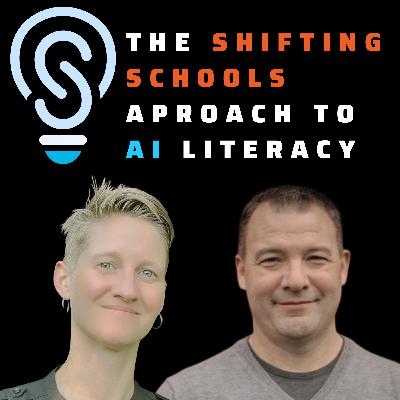

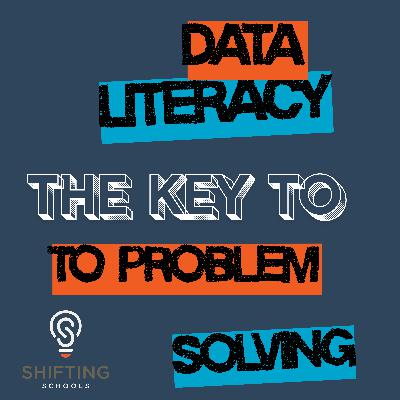
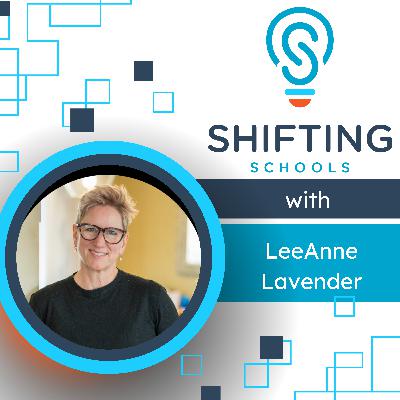
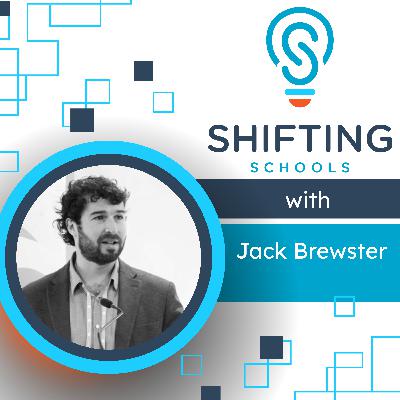
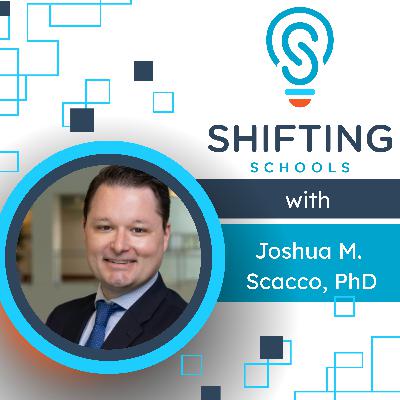
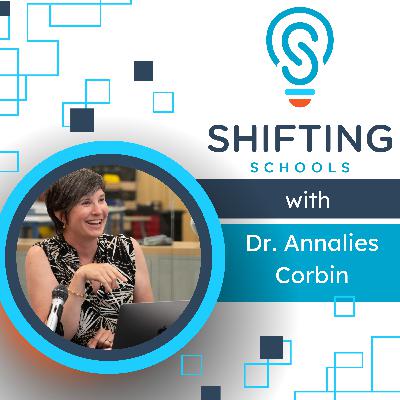
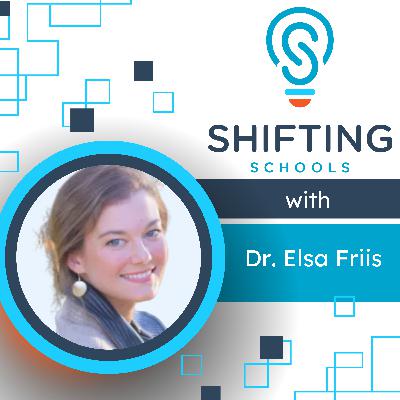
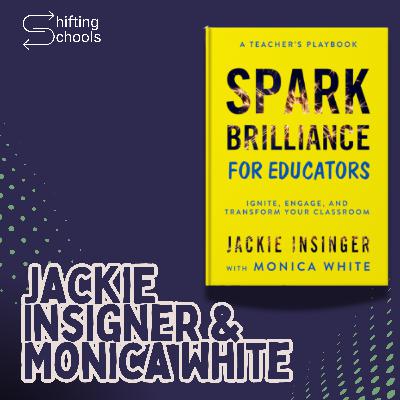
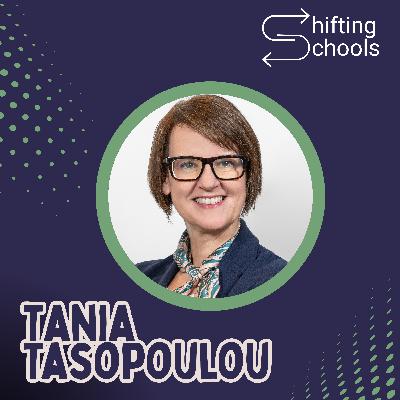


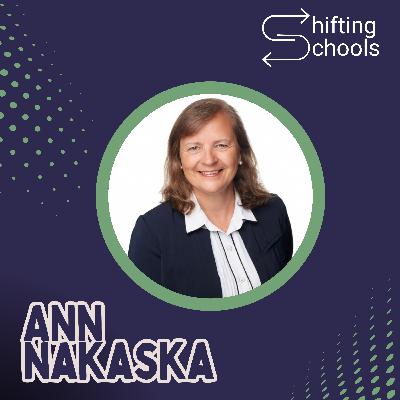
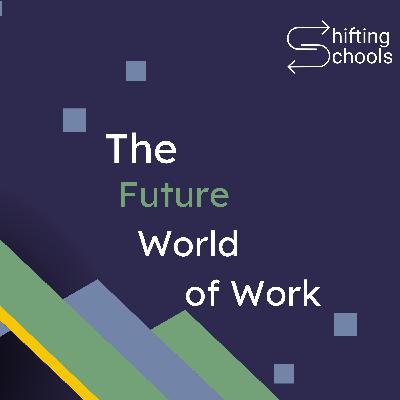

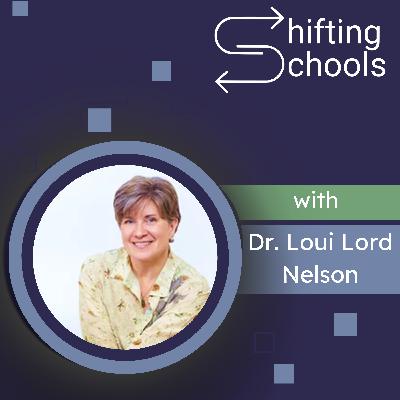
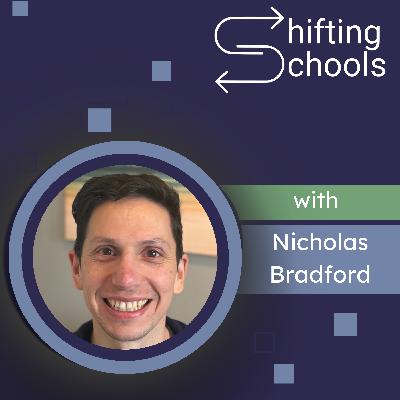
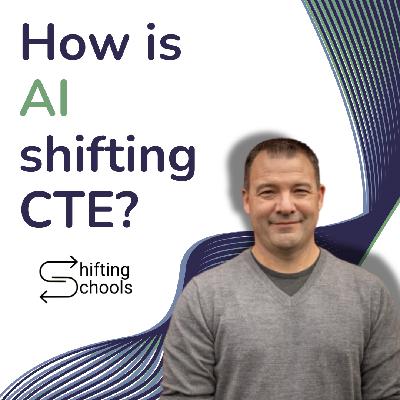




I'm a parent in Arizona. My son's high school is 1:1. I would love to take your parent curriculum.